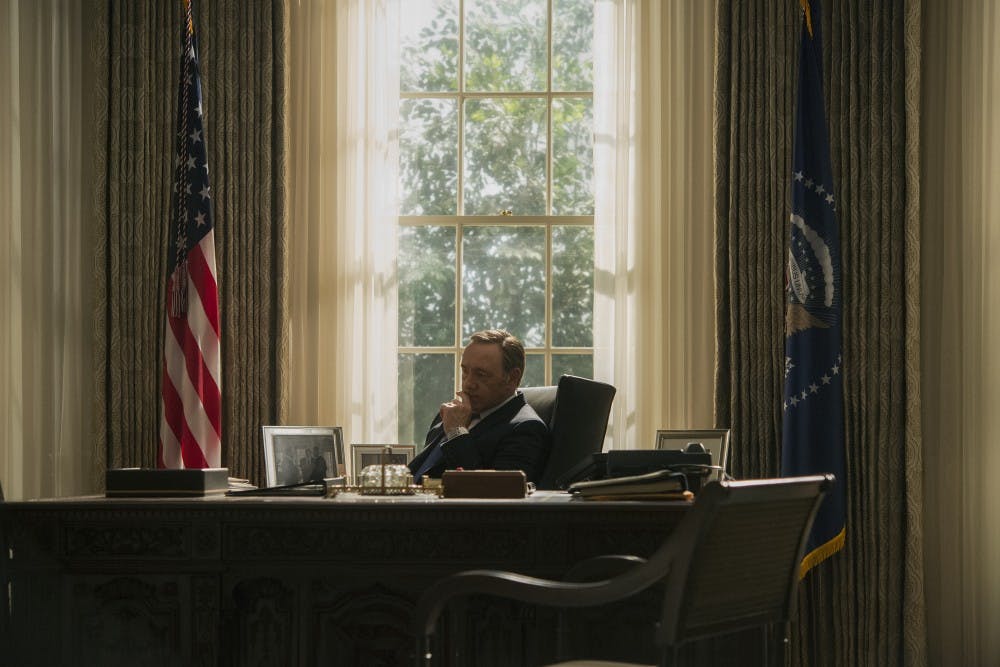Matt McKinney is a senior journalism news major and writes ‘Binge Watcher’ for the Daily News. His views do not necessarily reflect those of the newspaper. Write to Matt at mdmckinney@bsu.edu.
 |
|---|
*This review contains minor spoilers for season three.
Compared to past seasons, season three of “House of Cards” is the most polarizing. Most viewers will either be more excited to watch another season, or be done with the show by this point.
While the first two were about now-President Frank Underwood (played by Kevin Spacey, who was nominated for an Emmy as Underwood the past two years) and his rise to power, this season has an entirely different feel. After all, it has to. He has nothing left to conquer as leader of the free world, no more ranks to rise.
While the first two seasons were “Mean Girls” for grownups as Underwood worked the members of the United States government, this season has everybody on a more level playing field.
The story line of Underwood's opponent is easier to follow in season three. While season two had billionaire Raymond Tusk for Underwood to do battle with, “House of Cards” ups the ante in season three with Russian President Viktor Petrov – a clear Vladimir Putin knockoff.
Underwood's duel with Petrov (played by Lars Mikkelsen, who also played Charles Magnussen in “Sherlock”) centers around a negotiation they are trying to complete. The show does a great job of giving Petrov purpose and ambition, at least much better than Tusk in season two.
The episodes featuring Petrov are some of the season’s best. While Underwood can trick, lie to and manipulate his American political opponents, Petrov is another story. He is as cunning and manipulative as Underwood is. Anytime they are on screen together, it’s a mental chess game that’s incredibly fun to watch.
Overall though, season three isn’t about Underwood and his power struggles, it’s – as his PR writer/biographer says with heavy-handed symbolism – “about the marriage” between Frank and Claire Underwood (the latter played by Robin Wright, who was also nominated for two Emmys in the past two years). Season three, and seasons one and two by some regard, build up to the season three finale.
Frank and Claire have always relied on each other for support, just in an unconventional way. In the first two seasons, they seem to be more like business partners than a couple in a loving relationship. A strain is put on their relationship from early in the season with Frank and Claire’s rise to power.
The finale is a great way to wrap up the long-term story line the writers have crafted.
That’s not to say there aren’t issues with season three. The show still finds a way to explain problems too easily. After the Senate doesn't approve Claire’s entry as United Nations ambassador, she pleads with Frank to appoint her himself. He does, with a cost of “political approval,” some magical currency that never comes up again.
If there are no visible consequences to Frank simply appointing Claire himself, why go through the process with the Senate in the first place?
However, probably the most polarizing aspect of the show is the dialogue. While there is some merit in the opinion of those who say “House of Cards” is too bloated with over-exaggerated dialogue, it’s a political show about the workings of Congress and the President. If the dialogue were less extravagant, fewer people would watch.
Despite the dialogue and the easy explanations for what should be real problems, season three of “House of Cards” is my favorite of the show so far. I’m excited to see where creator Beau Willimon takes “House of Cards” for the next season.
Rating: 4/5





